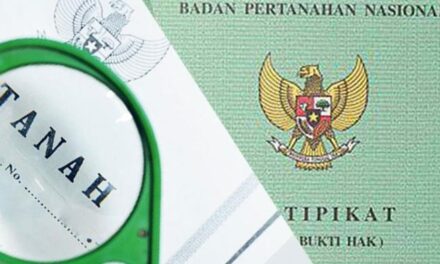 The sale and purchase provision is stipulated under Article 1457 Civil Code. It is defined as an agreement by which one party is bound to deliver a certain matter, for which the other party shall pay an agreed price.
The sale and purchase provision is stipulated under Article 1457 Civil Code. It is defined as an agreement by which one party is bound to deliver a certain matter, for which the other party shall pay an agreed price.
In a book that was written by Djaja S. Meliala, S.H., M.H., titled Penuntun Praktis Hukum Perjanjian Khusus (Practical Guide of Specific Contract Law) describes the types of sale and purchase agreements, one of which is the sale and purchase with the right to buy-back. Article 1519 of the Civil Code provides an understanding of the right to buy back as the ability to repurchase object that has been sold, arising from an agreement, which still gives the seller right to reclaim the sold objects, in return for the refund of the original sale price, together with the compensation referred to in Article 1532. The replacement under Article 1532, namely the return of the entire cash price of the purchase, replacement of all the charges according to the law (cost notary) who has been spent when organizing the purchase and delivery, the cost of repair/maintenance on the object agreement, and the cost of which causes the sold goods to increase in price.
The term of the agreed sales and purchase with the right to buy-back, under Article 1520 of the Civil Code is maximum of 5 years. The period that has been set is defined as absolute and judges were not allowed to extend that period. If the seller fails to apply for buy-back on the object agreement in a period that has been determined, then the buyer remains the owner of the goods that have been bought.
In fact, Indonesia’s land law is based on customary law. On this matter, the government promulgatedLaw No. 5 of 1960 concerning Basic Provisions of Agrarian (”UUPA”). In customary law, sale and purchase is known as land-sale. Land-sale is the transfer of land in perpetuity (sale and release) by receiving a certain amount of money (purchase money), which is paid in cash. By the payment and transfer the buyer obtains the full ownership rights (free or constrained) over the land. [1]
Customary law does not recognize the sale and purchase with the right to buy-back, rather pledge-sale or land pledge. Pledge-sale is a transfer of land by the payment of money, which is paid in cash, and the party transferring the land (the pledgor) can re-obtain the land, if that party repays to the pledgee the money that has been previously received. [2]
According to Prof. Van Dijk, sale and purchase with the right to buy-back is a wrong term and should be considered as a land-pledge. In doing pledge-sale, by transfer of land, the pledgee obtains the right to withdraw any benefits that arise from legal rights owned by only one exception: the pledgee is not allowed to sell the land, in the sense of selling off and the pledgee is not allowed to rent it out for more than one season (annual sale).[3]
Differences of sale and purchase with the right to buy back between customary law and western law of immovable assets:
| No. | Type | Customary Law | Western Law |
| 1 | Sale and purchase with the right to buy-back | Not familiar with their sale and purchase with the right to buy-back, but pledging the land. | sale and purchase with the right to buy-back (Article 1519 of the Civil Code) |
| 2 | Encumbrance | mortgage (hak tanggungan) | Hypothec right |
| 3 | Object | Land (include the building | Ship |
Several cases discuss the sale and purchase with the right to buy-back, one of them is Decision No. 3191 K/Pdt/2016 dated 16 February 2017. In that case the Plaintiffs were doing the sale and purchase with right to buy -back with the Defendants and made the Deed of Conditional Sale and Purchase Agreement. That deed stipulates that First Party was given the right to buy-back the land and building within 6 (six) months from the execution of the deed and will expire on 22 June 2014 with the price of Rp 2,420,000,000.00. On 15 October 2004 the Defendant sent demand letter to the Plaintiffs requesting them to vacate it voluntarily. However, the Plaintiffs refused, because they still have an intention to complete all their obligations and still consider themselves as the valid owner of thedisputed object of dispute.
Judges consider the sale and purchase with the right to buy-back that is contained in the Deed of Conditional Sale and Purchase Agreement as invalid and non-binding because:
- The institution of sale and purchase with the right to buy-back has been removed, and since that provision is removed, then sale and purchase with the right to buy-back is no longer applicable to the disputed object;
- What is actually happened between the Plaintiff by the Defendant was a loan relationship, and when the debtor is unable to repay its debt then the collateralized goods will be publicly auctioned;
- Whereas since the Deed of Conditional Sale and Purchase Agreement No. 14 dated 23 December 2013 is declared not valid, it is justified under the law to state that all things arising out of such deed are not valid non-binding.
Some jurisprudence uphold that the sale and purchase agreement of land with the right to buy-back are null and void and is considered as a loan agreement with collateral, namely:
- Supreme Court Decision No. 78 PK/Pdt/1984 dated 9 April 1987 jo. Supreme Court Decision No. 2650 K/Sip/1982 dated 20 September 1983 jo. PT DI Yogyakarta Decision No. 86/1981/ Pdt., dated 29 January 1982
Notarial deed made with its subject- matter a loan agreement with land/house as collateral, but wrapped as sale and purchase agreement with the right to buy-back (Koop en Verkoop met recht van wederinkoop) which then is followed by an execution of an Absolute Power of Attorney (onherroepelijk volmacht) with the purpose to perform transfer of land right from the debtor to the creditor when the debtor defaults, is considered as pseudo/illusory agreement and to be judged as a loan agreement with collateral.[4] - Supreme Court Decision No. 381 K / PDT / 1986 and Jurisprudence MA RI No. 3597 K / PDT / 1985
Sale and purchase agreement of land with the right to buy-back that is made by the parties in that case is declared as null and void since the sale and purchase of land with the right to buy back is not recognized under customary law. Sale and purchase with the right to buy-back is considered as a form agreement as set forth in Article 1519 BW and so on. Sale and purchase of land/building should comply with the provisions in UUPA which is subject to the customary law, and customary law does not recognize the form of sale and purchase with the right to buy-back.[5] - Decision No. 153 K/PDT/2001
Declaring that: a) Sale and purchase agreement of land with the right to buy-back is essentially the same as black pledge/black bank, which are both illegal; b) Sale and purchase agreement with the right to buy-back, according to the Supreme Court of Indonesia is null and void because since the enactment of the UUPA it has been determined that the Agrarian Law that applies for the earth, water and the space is based on customary law. This means that the legal institution of sale and purchase with the right to buy-back, so long as it is related to land, is no longer recognized in our Agrarian Law; c) accordingly the sale and purchase of land with the right to buy-back is null and void. Also, the sale and purchase agreement of the disputed land is void.
Based on the legal rules outlined above, the sale and purchase of land with the right to buy-back is considered null and void since Indonesia adheres to the customary law and the customary law does not recognize the sale and purchase of land with the right to buy-back.
[1] R. Van Dijk, Introductory of Customary Law, (Bandung: Mandar Maju, 2006) page. 80.
[2] Ibid, page. 81
[3] Ibid, page. 81
[4]H.M. Fauzan dan Baharuddin Siagian, Dictionary of Law & Jurisprudence(Depok: Kencana, 2017) hal. 791-792
[5]Marilang, The Law of Contract, Contract that derived from an agreement (Makassar: Indonesia Prime, 2017) page. 283-284
[6] Ibid., page. 284
Iin Yunni Chandra Devie





